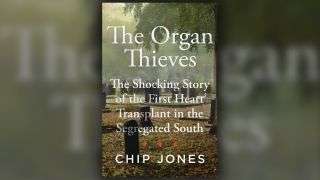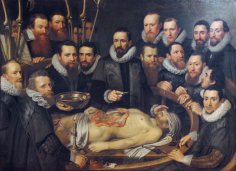
CHAPTER ONE: Case of the Missing Heart
In late May 1968, Doug Wilder was in his law office on a tree-lined street in Richmond, Virginia. He was winding down from a long day of work when the phone rang.
“They took my brother’s heart!” the man on the other end of the line exclaimed in horror.
As one of the best-known African American trial lawyers practicing in the state capital, Wilder was accustomed to taking random phone calls day or night. Accusations of rape, robbery, and murder were not uncommon, nor were other desperate pleas from mothers and fathers seeking help for loved ones who’d run afoul of the legal system. Even as halting steps toward progress had begun to bring incremental improvements in schools, housing, and jobs, his home state of Virginia was still moving at a snail’s pace from under the heavy burden of centuries of discrimination.
But taking a man’s heart from his own body? Wilder had never heard of such a thing. “I don’t understand what you’re talking about, not having a heart,” he told the caller, William Tucker. “What do you mean? What happened to it?”
He started taking notes as Tucker described a deeply disturbing series of events that had just unfolded over the weekend. It all started when his brother Bruce went missing after work on Friday. It took a series of frantic phone calls—prompted by an insider’s tip—to finally locate him at the Medical College of Virginia (MCV) on Saturday night. Then some bureaucrats hemmed and hawed before finally delivering the shocking bad news: his brother—who’d been rushed to the hospital with a head injury less than a day before—had died only a few hours earlier on an operating table.
Bruce’s body had been claimed and taken to a funeral home near the family farm. William was given Bruce’s final possessions—among them his driver’s license and a business card. His business card, William realized. It was for his shoe repair shop only a few blocks from the hospital. Why hadn’t anyone called him sooner?
A day later, still numb from the news of his brother’s death, William began the hour-long drive to the farm. He wanted to personally break the news to his eighty-year-old mother, Emma, and to Bruce’s teenage son, Abraham, who lived with her. First, though, he would check with the local undertaker about the upcoming funeral. William’s best-laid plans were shattered, though, when he learned more shocking details of his brother’s treatment in an operating room at the Medical College of Virginia.
✭ ✭ ✭
William Tucker’s ordeal started with a hushed call from a friend inside the hospital. “Something’s going on with Bruce,” the friend whispered.
William put down a pair of shoes he was working on. It was early Saturday afternoon. He asked his friend to speak up and explain himself. His friend whispered something about a heart operation involving Bruce. Then the line went dead.
William stared at the phone and laid it back on its cradle. What was that about?
He tried calling the hospital a couple of times but couldn’t get a straight answer. It took him a few hours to close up shop and drive over to MCV. By then it was after 7:00 p.m. When the hospital finally sent out some men to talk to him, he asked them a simple question: “Where is my brother?” William, a polio victim who used crutches, braced himself for the reply.
Bruce was dead, he was told, and “you’ll need to make funeral arrangements.” Nothing was said about an operation or anything about Bruce’s heart.
✭ ✭ ✭
On Monday morning, William Tucker swung by Jones Funeral Home in Stony Creek, Virginia. Mack Jones, the owner and mortician, apologetically informed William that while preparing the body for burial he noticed something bizarre: Bruce was missing his heart—and his kidneys.
As William related his tale, Wilder put down his pen. This was too much to write down. After a silence, William asked Wilder if he’d represent him and the family and try to get to the bottom of what happened.
“Yes, I will,” Wilder agreed. Though he tried to sound confident, he also knew there was something about the sound of this case he couldn’t quite put his finger on. It was something that went to the dark heart of the city and state of his birth.
It had been almost ten years since Wilder graduated from Howard University School of Law in Washington, DC, but he still practiced law in the long, lingering shadow of the Jim Crow South. The courtrooms, jailhouses, and white-controlled bar association were all woefully behind the times and observed strict segregation. A black Virginian had no chance of having his or her trial being adjudicated by an African American judge for the simple reason that there weren’t any black judges. Black jurors were also a rarity, since any defense attorney worth his salt would use the law to strike anyone of color from a jury panel.
✭ ✭ ✭
William Tucker went on to describe more of the peculiar circumstances surrounding his brother’s demise. Bruce had been working at an egg-processing plant not far from Wilder’s law office. After work that past Friday, he was relaxing with friends and passing a bottle of wine in the shade behind an Esso station. He was sitting on a wall but lost his balance and hit his head, rendering him unconscious. An ambulance was called. Bruce was quickly transported to the nearby MCV, the state’s largest teaching hospital.
That’s how it started. But what happened after Bruce was treated in the emergency room and later by the hospital’s brain-injury specialists? And why would he attract the notice of its heart surgeons? Wasn’t it his head—not his heart—that was injured?
From what Wilder could piece together from William’s first account, something simply didn’t add up. It reminded Wilder of some kind of science fiction movie where doctors experiment on humans in the dead of night. As William’s friend had whispered from inside the hospital, “They’re doing some kind of experimental heart operation.”
But who? Wilder wondered. And why? What happened behind the walls of the big hospital on the hill?
Sourse: www.livescience.com





